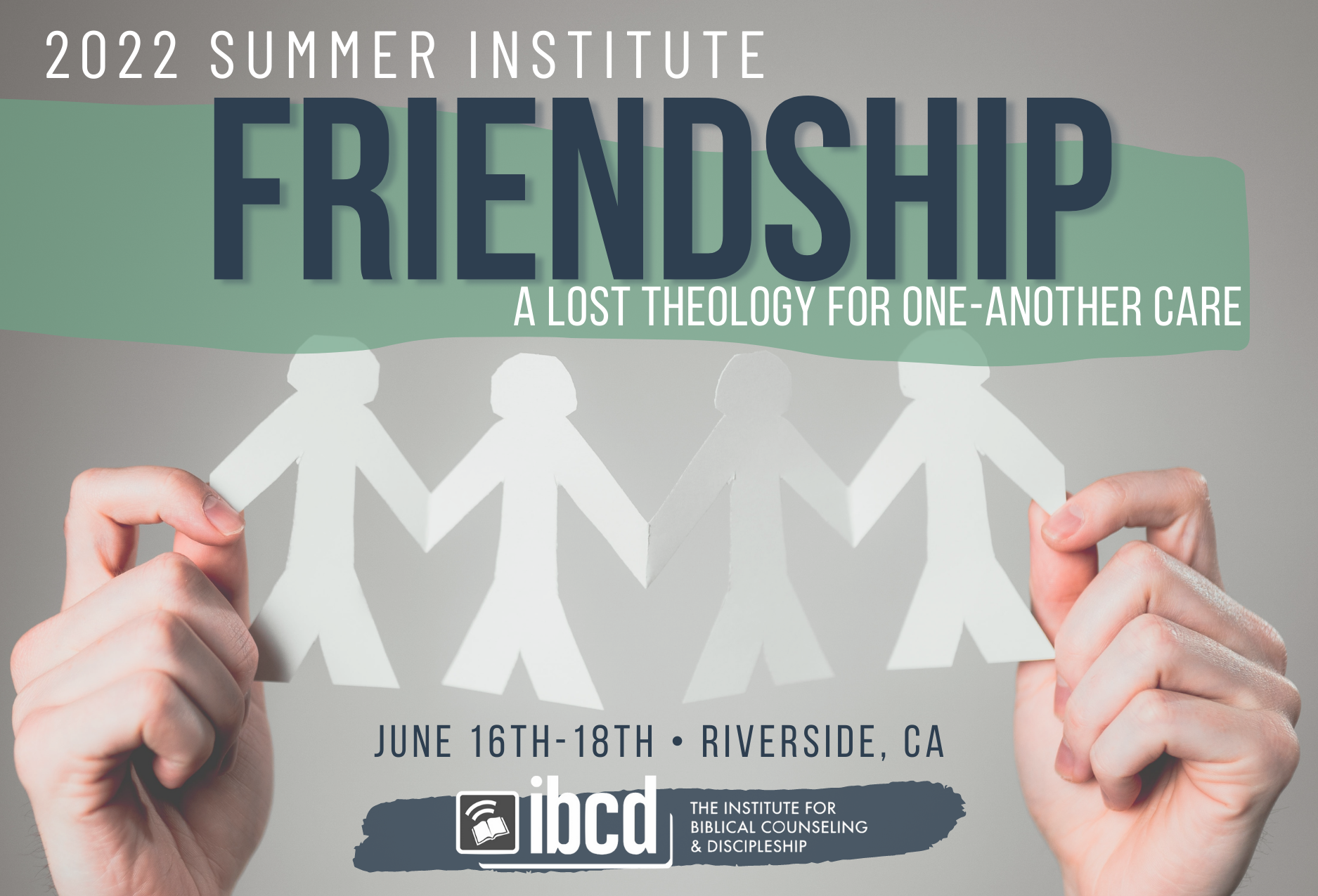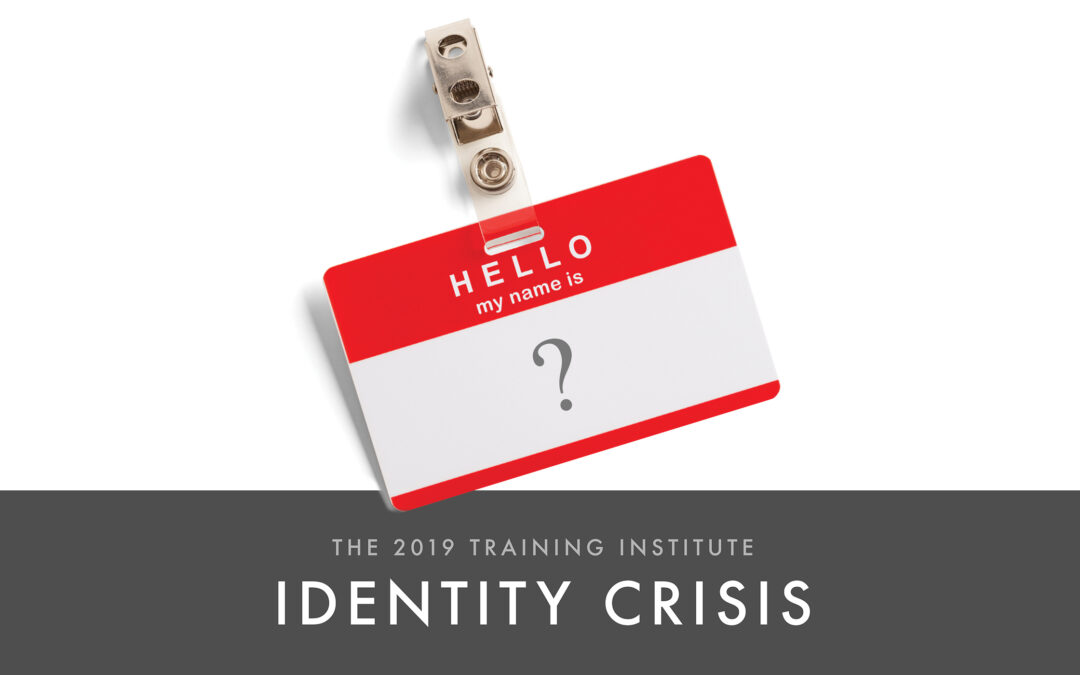
Conflict
Go to resourcesBrowse Free Resources


Abigail: A Woman Who Wisely Handled a Family Crisis

When Your Friends Despise and Forsake You

Threats to a Biblical Friendship

How to Respond to Difficult People in Love

The Gift of Apology in Friendship

The Delicate Art of Christian Confrontation

Forgiveness and Friendship

I am not my Love Language
” This workshop will explore the idea of “Love Languages” and how they should be...

Q/A When People Reject our Counsel
When counseling, responses can vary widely. What do we do when people don’t take our counsel? Craig and Jim sit down to discuss a listener question about this personal aspect of the counseling process.

Rebuilding a Marriage After an Affair part 1
In this two-part audio series, Wayne Mack discusses principles for recovering from an affair. He begins by discussing the nature of marriage and its relationship to Christianity as ‘heart’ religion. Wayne Mack also articulates how to properly confess an adulterous sin to a spouse. He then finishes by discussing 12 steps for rebuilding the marriage.

Lies: Believing Them and Telling Them
A neglected biblical theme for addiction is the movement from lies to truth, and from the Liar to the Truth. Our job is to do whatever we can to invite strugglers to be open and honest.

Overcoming Abusive Speech
The Bible teaches that words can be as destructive (or abusive) as fists. Every time we open our mouths we are either promoting God’s kingdom by building others up or we are extending the realm of the Evil One by tearing others down. How can our sinful tongues be tamed?

Victim Care
In this session author Chris Moles will teach how to give real help, hope and healing to victims of domestic abuse.

What is Domestic Violence?
In this session author Chris Moles will define domestic violence, explain the motivations and tactics of perpetrators and discuss the various manifestations of domestic violence including physical, sexual, emotional, economic and psychological abuse.

020 Counseling Cases of Domestic Abuse
To close out season 2 of the Care & Discipleship Podcast, Craig Marshall sat down with Jim Newheiser (Director of Biblical Counseling at RTS Charlotte) and Tom Maxham (pastor of Grace Bible Church, Escondido and staff counselor at IBCD) to discuss the tenuous situation of dealing with domestic abuse when counseling a couple. This episode is a response to a listener question and addresses a very relevant issue in the church today. The counselors discuss how to respond not only to physical abuse but also how to think through verbal and emotional abuse. They detail the various ways in which churches tend to make mistakes regarding verbal and emotional abuse and articulate a proper response. They also engage with the book The Heart of Domestic Abuse written by Chris Moles who will be speaking on the issue at the 2017 Summer Institute and Pre-Conference.

Living In Freedom Amidst Broken Relationships
God is in the reconciliation business therefore we must also be. The consequences of failure to reconcile are severe but the results of true reconciliation bring peace and joy. This workshop teaches the road to reconciliation through humble confrontation and forgiveness.

Making The Invisible Visible; Loving Our Enemies By Grace
Only the gospel transforms lives. The problem is we don’t really believe it. We must come to believe all that’s promised in the gospel and the power that’s present in the gospel. This session unpacks Matthew 5:38-48 and how the gospel enables us to love our enemies.

Language That Transforms
Are you or your counselee stuck in frustrating and sinful communication patterns? How can you honor God in your communication? This workshop teaches the Communication Skills Wheel as a method for accurate and purposeful communication that builds up both individuals.

God’s Reconciliation As The Foundation Of Our Peacemaking
Domination by the devil, disobedience, desire, death and demographic differences are at the root of our peace-breaking. This session shows how Christ’s cross and His Spirit address these issues as we counsel in humility, gentleness, patience and love.

Helping Parents Develop a Culture of Peacemaking in the Home
Sin creates family strife but the gospel produces a culture of reconciliation in the home. Children will learn to respond to conflict either sinfully or in a godly way. This workshop examines 8 tools of peacemaking to help parents train young peacemakers.

Redemptive Church Discipline
Mutual accountability and discipline are God’s gifts and blessing to the church. This session explains the process of church discipline and discusses how to build a culture that values, understands and allows for this kind of accountability.

Practical Mediation Skills
Biblical mediation skills can be applied in every life setting to help others resolve conflict. This session takes a detailed look at the primary and secondary roles of a reconciler and foundational skills needed for building a peacemaking team.

Living at Peace with Your Young Adult Children
You may have always expected your job as a parent to be done once your children reached adulthood but you never stop being a parent! This session discusses how to handle many of the unique challenges that arise for parents of young adult children.

When is it Sinful to Keep the Peace?
Peace is something to be worked for and towards but there are a number of scenarios where this is impossible or even sinful. This session unpacks five major areas where people may be inclined to “keep the peace” when they should speak out.

Joseph The Peacemaker
Joseph’s treatment of his brothers in Genesis 45 provides an excellent model of biblical peacemaking and reconciliation. This session looks at what we can learn from Joseph’s example to help us in our own efforts toward peacemaking.

A Biblical Theology Of Peacemaking
How can you prepare people to live out the gospel in the conflicts of daily life? In these three sessions Ken Sande develops a vision for building a culture of peace in the local church. This is part 2.

Building A Culture Of Peace In The Local Church
How can you prepare people to live out the gospel in the conflicts of daily life? In these three sessions Ken Sande develops a vision for building a culture of peace in the local church. This is part 3.

Peacemaking For Families
The family is a hotbed for conflict. It is also the primary arena in which we can learn and practice peacemaking. This session focuses on making your marriage one of the safest places in the world and making peace with children.

Peacemaking: The Supreme Display Of God’s Glory
How can you prepare people to live out the gospel in the conflicts of daily life? In these three sessions Ken Sande develops a vision for building a culture of peace in the local church. This is part 1.

Problems that Prevent You from Being a Peacemaker
We must understand the antithetical states of war and peace if we are to be peacemakers. This session takes an in-depth look at characteristics of a peacemaker and characteristics of a trouble maker as described in multiple passages of Scripture.

Counseling People Pleasers
Some people are addicted to the approval of others. This session will give criteria to help diagnose the spiritual disorder of man pleasing and teach you how to help counselees dethrone the idol of approval.

Counseling Manipulators
What is manipulation and how can we help those who manipulate others? This session will teach you how to help manipulators identify their sinful patterns, evaluate their thoughts and motives biblically and begin to develop the mindset of a servant.

Pursuing Peace through Biblical Conflict Resolution
Sadly many people, even Christians, respond in destructive and sinful ways when conflict arises. This session will look at the steps of biblical conflict resolution, describe the PAUSE principle and discuss options including mediation and arbitration.

Conference Table Guidelines
A handout outlining the purpose and procedures for Conference Table discussion. This handout is useful for counselees to review before beginning a discussion during the week.

2 Ways to Handle Hurts
A graphically driven handout to accompany biblical teaching on responding when hurt, contrasting possible natural responses with responses that rely on God’s supernatural grace.

Things You Can Do To Resolve Conflict
A handout reviewing 15 ways to work toward conflict resolution This list helps to shift the focus away from what the other person ought to do and on to one’s own responsibilities.

Guarding Against Gossip
The sin of gossip is easily overlooked or minimized but affects relationships and is destructive within the church. This workshop will cover the dangers of this particular sin of the tongue and discuss examples the Bible gives as well as the hope it offers.

When It Is Hard To Let Go – Helping Those Who Forgive
It can be easy to say the words “I forgive you” but very difficult to extend true forgiveness to someone who has hurt us. This seminar will help equip individuals to minister to those that find themselves struggling with the forgiveness they have granted.

Difficult Cases and Wisdom in Counseling (Part 1)
It is important to know Biblical principles, but knowledge in itself is not enough. You need wisdom to apply Biblical principles to real cases. This workshop examines two real, difficult cases: Militia Man and His Mad Mate; Suing Sinner and His Suffering Family.

Equipping Women to Uproot Bitterness
Bitterness can easily take root in the heart when we’ve been hurt or offended or we believe something has happened to us that is unfair or unjust. This message will examine evidences of bitterness, ruling motives, and practical steps to rooting it out for the glory of God.

Difficult Cases and Wisdom in Counseling (Part 2)
Knowing what the Bible says about something is only the first step. You need wisdom to know how to apply Biblical principles to real cases. This workshop examines two real, difficult cases: From Bad to Worse and Back; Dispirited Pastor and His Disgruntled Wife.

Gospel-Driven Reconciliation
Many people live with unresloved conflict. The process of reconciliation can be challenging and tumultuous. This seminar will examine how the gospel serves as the foundation for reconciliation and empowers those who are struggling to be reconciled to one another.

Pursuing Peace by Forgiving Others
Forgiveness can be very hard, particularly when someone has hurt us very much. This session will examine how for Christians, meditating on the way Christ has forgiven them all of their debts can and should empower them to forgive others.

Pursuing Peace by Gently Restoring Others
Sometimes to live at peace with others we must confront them about their sin. This session will discuss how to determine if a sin must be confronted and how to go about the process in a way that seeks to gently restore a brother or sister.

Humbly Pursuing Peace
God calls us to peace with others, but in this life it is impossible to completely avoid conflict. This session will examine how to understand conflict from a biblical perspective and practical ways to humbly pursue peace with others when conflict does arise.

The God-centeredness of Affirmation
If I praise others won’t it just make them prideful? Is there a way that praising others can actually build them up to become more Christlike? This session gives biblical warrant for God-centered praise of those who are not God.

Affirmation: The Problem and Opportunity for Every Person
Why is it important to practice affirmation? How can this radically change our relationships for the better? This session will discuss the pervasive, universal, non-optional mechanism that God has wired into the universe.

Helping People Get Good at Affirmation
It is so much easier to be critical of others than to affirm them. Even when we want to build others up we often find ourselves tearing them down instead. This session will discuss how to help people grow in their ability to affirm others well.

Practical Applications of Affirmation
What are some practical ways that you can begin to apply the principles of God-centered affirmation to your relationships? This session will help you to move beyond good intentions to actually cultivating joyful, healthy relational patterns.
